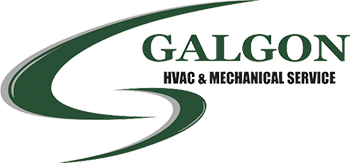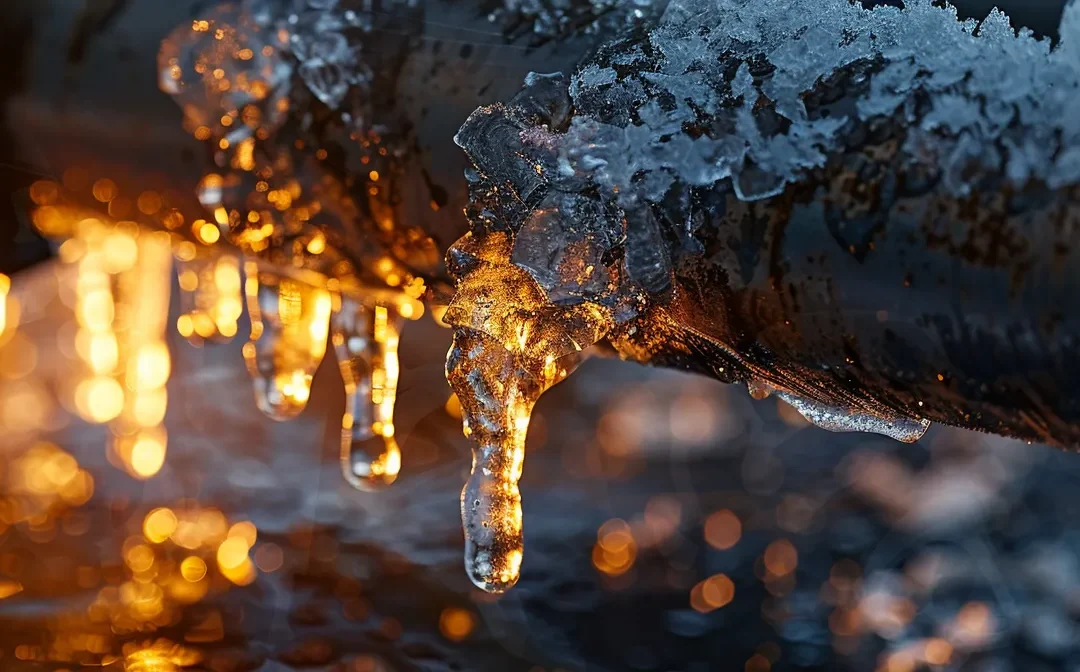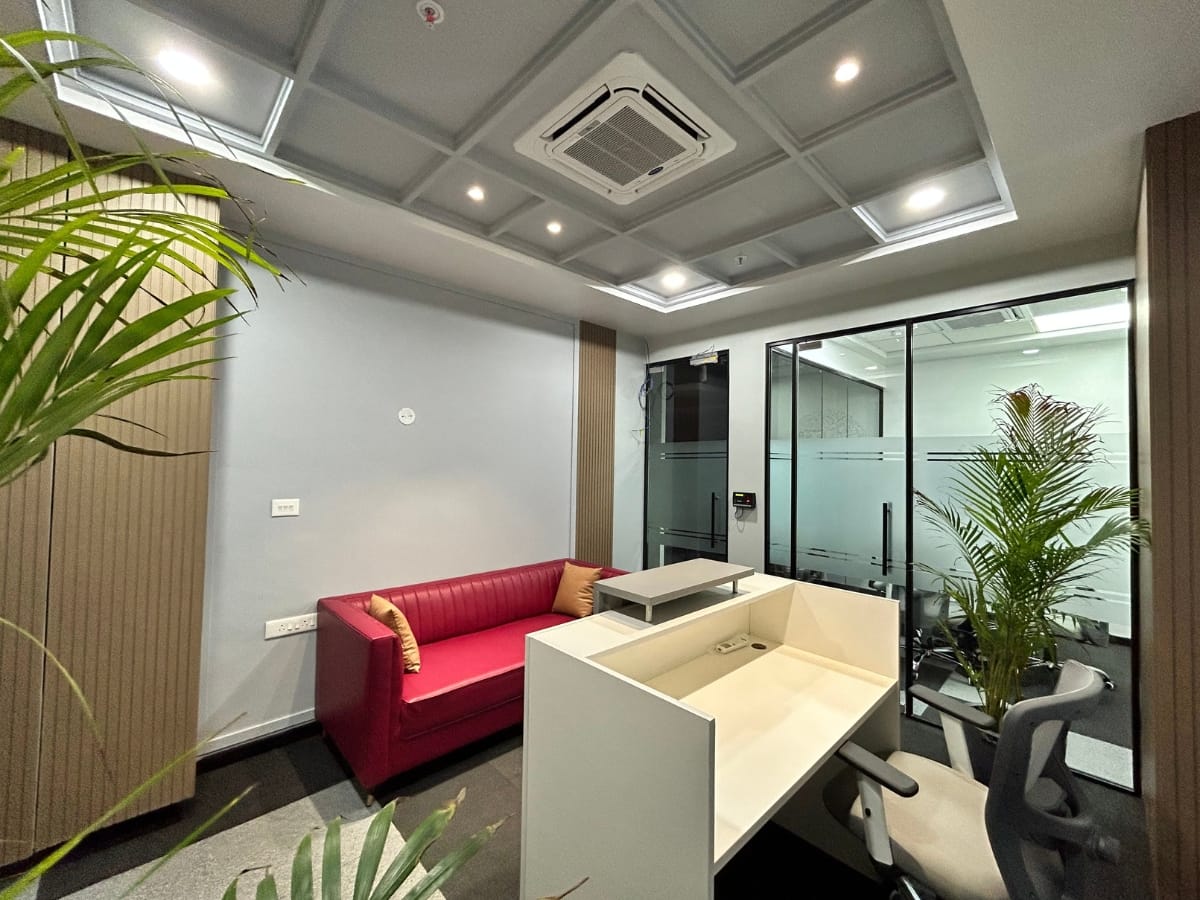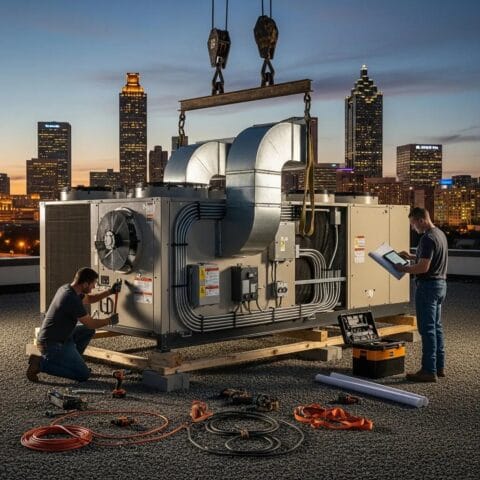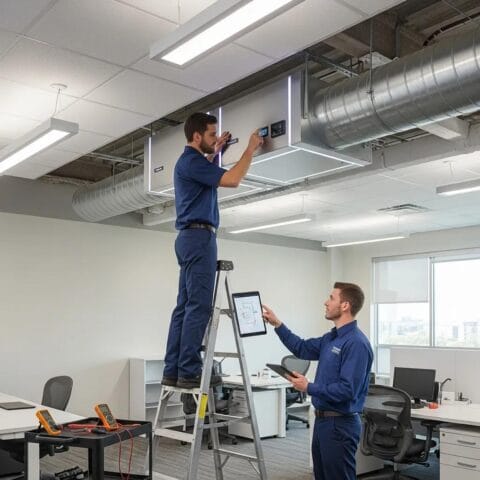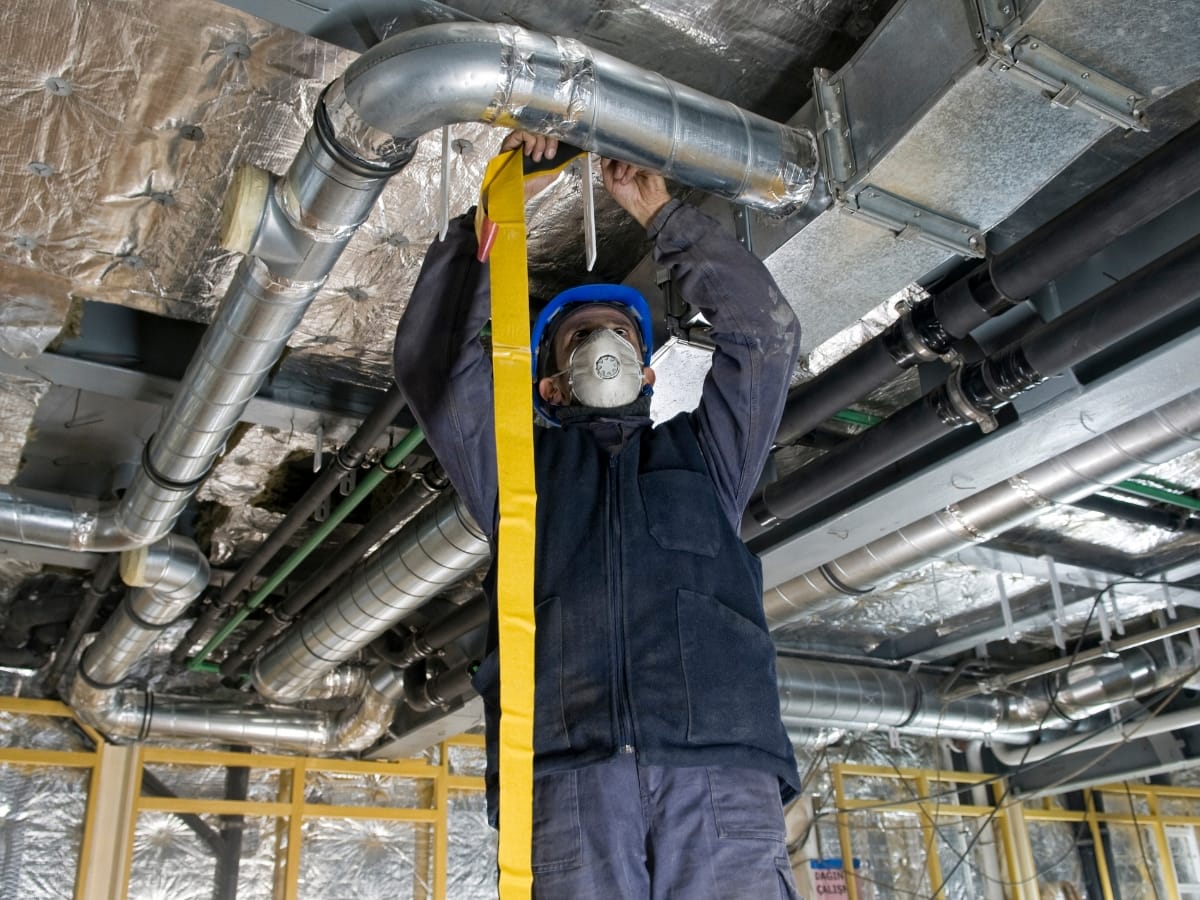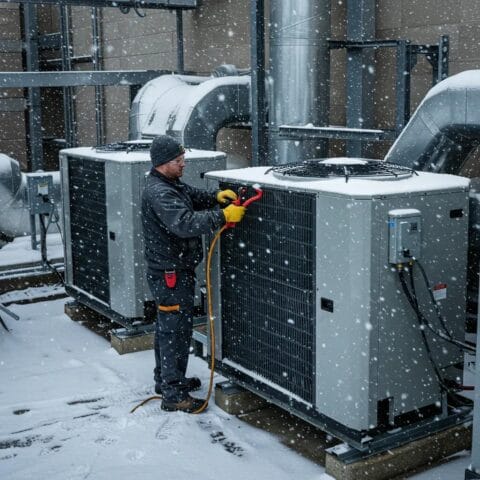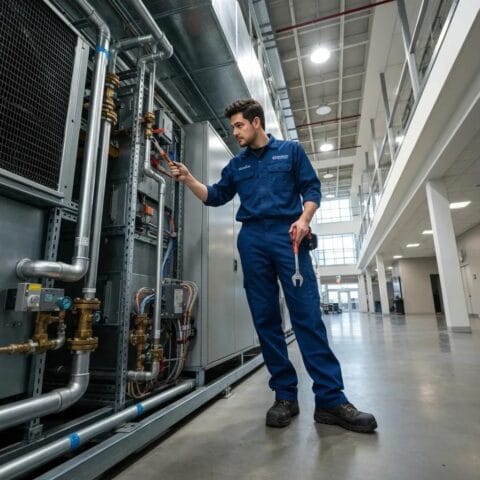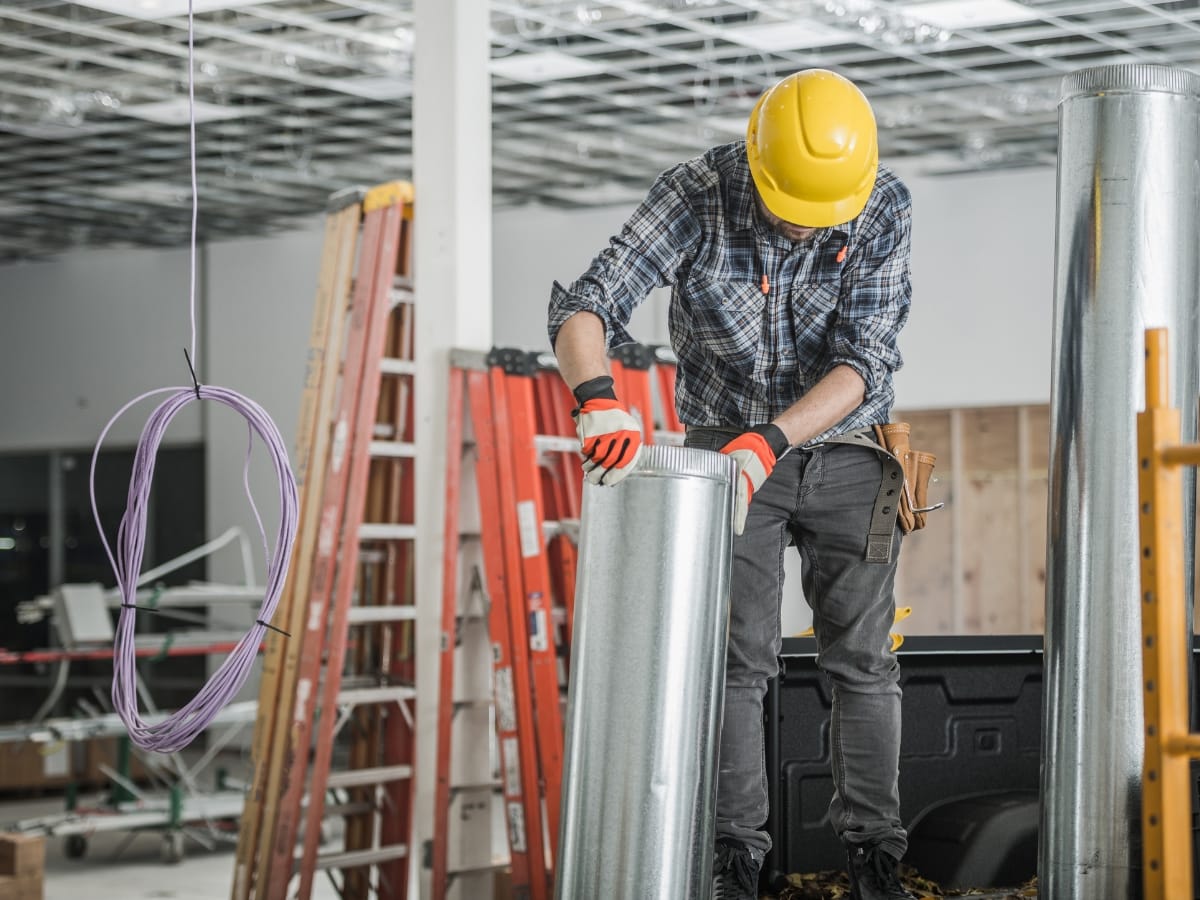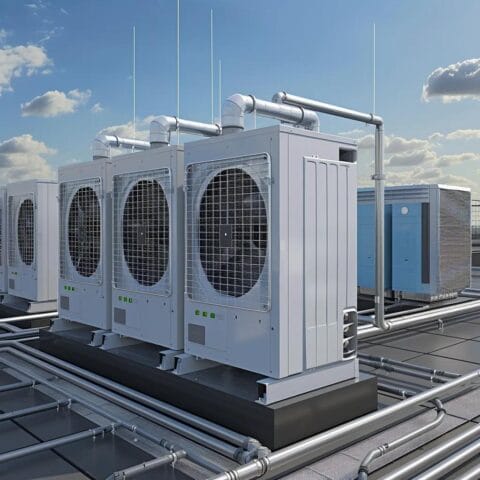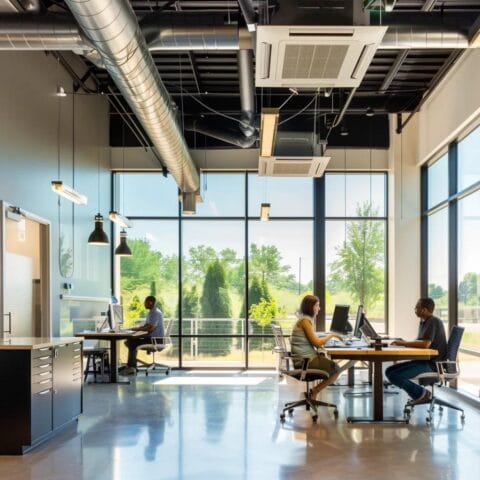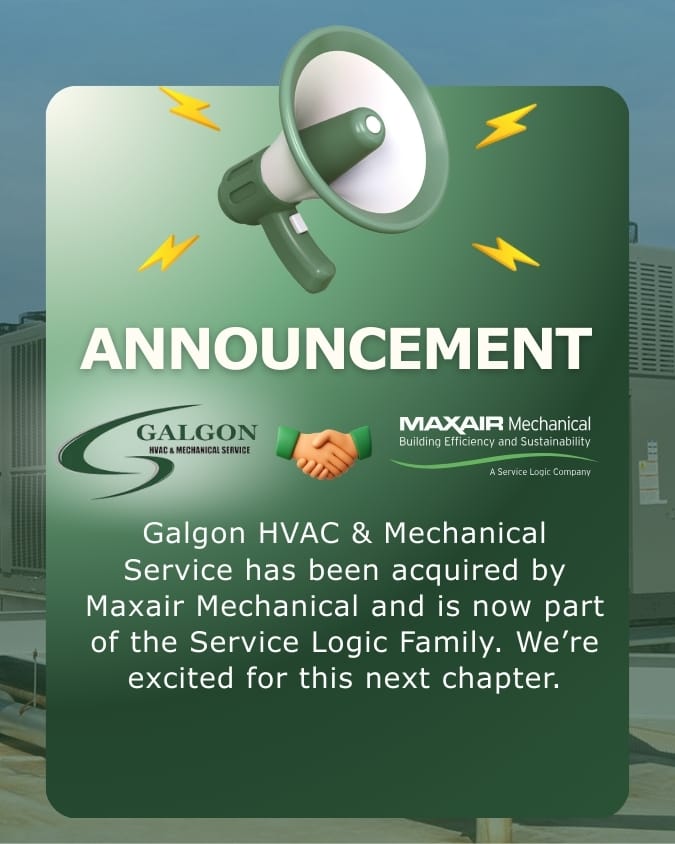Ever had a burst pipe turn your commercial space into a winter wonderland? Not the fun kind, but the kind that spells disaster for your business operations and budget.
This article zeroes in on the risks of frozen pipes and the importance of winter plumbing inspections to keep your property safe and dry. You’ll learn effective strategies for preventing pipes from freezing and how to create a solid winterization plan.
Plus, we’ll guide you through the steps to take if the cold snap hits your pipes hard. By sticking with us, you’ll discover how to protect your attic‘s heat, prevent water from freezing in your pipes, and ultimately save on costly repairs.
Winter Plumbing Inspections: Prevent Frozen Pipes This Season
Key Takeaways
- Regular plumbing inspections prevent costly damage from frozen pipes in winter
- Proper insulation and maintenance are key to protecting commercial plumbing systems
- Professional plumbers offer tailored solutions and ensure compliance with safety regulations
- Temperature monitoring devices help detect and prevent pipe freezing early
- Investing in preventive plumbing services saves money and secures business operations long-term
Understanding the Risks of Frozen Pipes in Commercial Properties
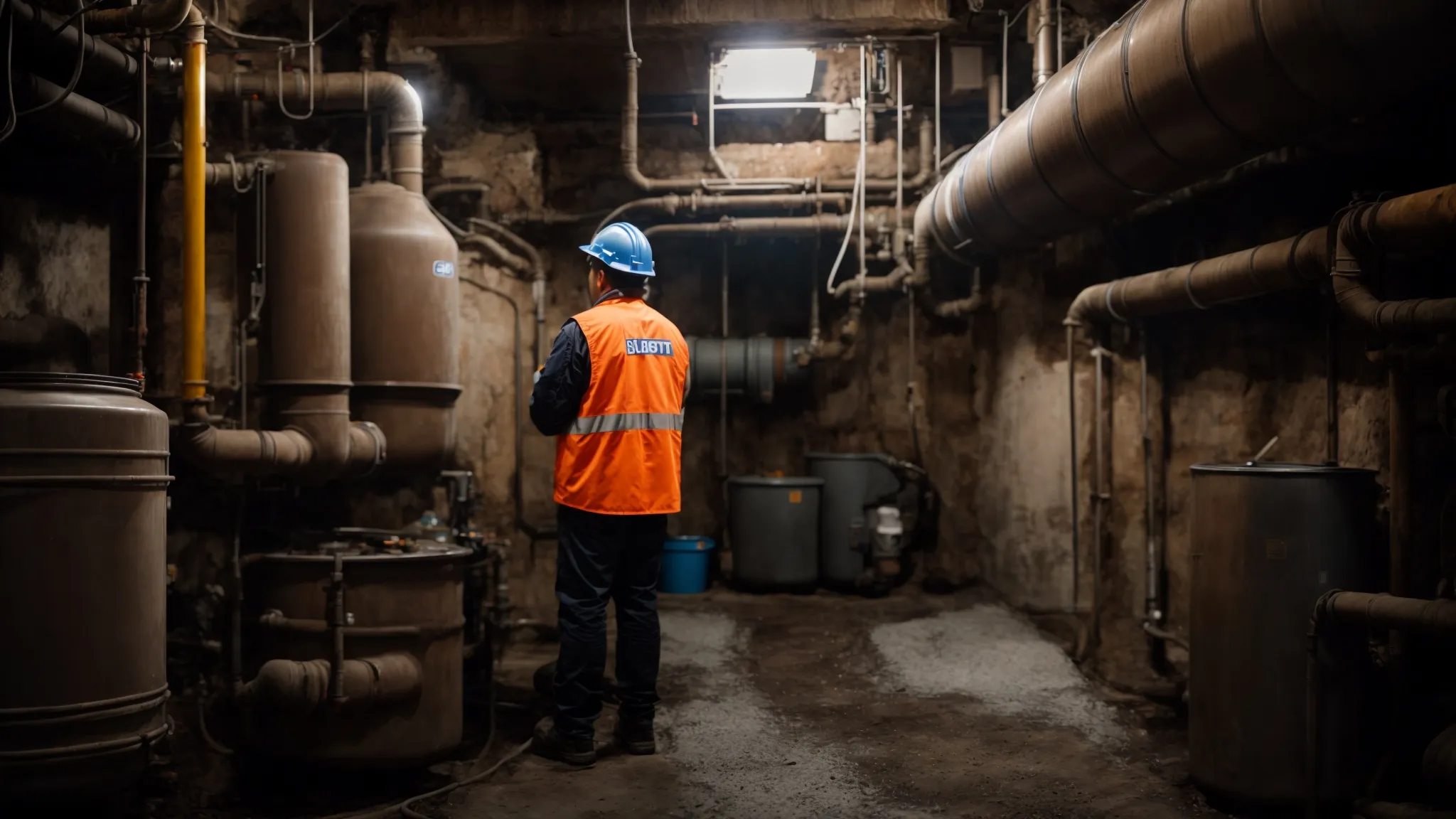
When winter hits, your business can’t afford the downtime and damage that frozen pipes bring. From disrupted operations to costly leaks, understanding the risks is key.
Let’s get into what causes pipes to freeze in commercial buildings, pinpoint high-risk areas, and discuss how regular inspections, preventative maintenance and antifreeze measures can keep your commercial HVAC systems safe.
You’ll learn how to spot trouble before it starts, ensuring your property stays dry and operational all season long.
Impact of Frozen Pipes on Business Operations
Imagine walking into your commercial space on a chilly winter morning only to find a burst pipe has flooded your basement. The impact on your business operations can be immediate and severe.
Water damage from frozen pipes can knock out your HVAC systems, ruin inventory, and even force you to close your doors temporarily for repairs.
It’s not just about the drain on your finances; it’s the disruption to your services and the potential loss of trust from your customers that can really sting.
Now, consider the hidden areas like the crawl space or backflow prevention devices that are often out of sight and out of mind. These spots are prime real estate for freezing temperatures to wreak havoc.
A frozen pipe in these areas can lead to a cascade of issues, from impaired water supply to significant structural damage. By staying vigilant with regular inspections and regular maintenance, you can safeguard these critical zones and keep your business running smoothly, no matter how low the mercury drops.
Common Causes of Pipe Freezing in Commercial Buildings
One of the main culprits behind frozen pipes in commercial buildings is a drop in temperature that catches your commercial HVAC unprepared. If your taps are silent and your building‘s temperature dips too low, water inside the pipes can freeze, expand, and cause a burst, leading to potential flood and water damage.
It’s crucial for you to keep your property’s heating consistent, especially in areas where pipes are exposed or poorly insulated, to prevent this chilly disaster.
Another common cause is inadequate drainage and insulation, especially in spaces that aren’t frequently accessed. You might not think about the pipes tucked away in the basement or the attic, but these are the spots where professionals would tell you disasters often start.
Ensuring proper insulation and checking that your drainage systems are clear of debris can save you from the headache of water damage. Remember, a little attention to these details now can prevent a major freeze and flood later on.
Identifying High-Risk Areas for Pipe Freezing
Spotting the high-risk areas in your commercial property is a crucial step in preventing the mayhem of frozen pipes. Pay special attention to the roof where snow and ice can build up, creating pressure on plumbing vents.
Also, keep an eye on any outdoor hose bibs, as they are directly exposed to the elements and can freeze quickly, potentially affecting your interior plumbing systems.
By identifying these vulnerable spots, you’re taking a proactive stance against the cold, safeguarding your property against the risks of water damage and the ensuing headaches.
Inside, don’t overlook areas like the restroom where toilets and sinks are used less frequently, as they can be susceptible to freezing due to inactivity.
Also, consider spaces where the electricity may be turned down or off, as the lack of heat can allow temperatures to drop to dangerous levels for your pipes. Here’s a quick rundown of the places you should check to prevent frozen pipes:
- Roof plumbing vents and outdoor hose connections
- Underutilized restrooms and sinks
- Areas with reduced or no heating, such as storage rooms or vacant units
Remember, a bit of prevention now can save you from a world of trouble when winter’s chill sets in. Keep these areas in mind, and you’ll be well on your way to a season free from the disruption of frozen pipes.
Frozen pipes can cripple your business when the cold bites. Let’s ensure your plumbing stands strong against winter’s chill with a thorough inspection.
Conducting Comprehensive Winter Plumbing Inspections

As the mercury dips, it’s time to focus on winter plumbing inspections to prevent the costly aftermath of frozen pipes in your commercial property. Don’t forget about inspecting heating systems and thermostats; they’re your frontline defense against the cold. Each step is a stride towards safeguarding your property this winter.
Assessing Indoor Plumbing Systems
When you’re gearing up for the cold months, assessing your indoor plumbing systems is a must to fend off the ice and avoid an emergency.
You’ll want to check that your sump pump is in tip-top shape and that your air conditioning units are winterized to prevent any unexpected freeze-ups. It’s all about catching issues early, so you’re not left scrambling with a hair dryer trying to thaw out a pipe when you should be focusing on your business.
Take a walk through your property and keep an eye out for any signs of moisture or drafts that could spell trouble for your pipes. Ensuring your heating system is functioning properly is not just about comfort; it’s a critical step in preventing those pipes from turning into ice sculptures.
A well-maintained indoor environment means you’re less likely to face the chaos of burst pipes, keeping your operations smooth and your mind at ease.
Evaluating Outdoor and Exposed Pipes
Stepping outside, you’ll want to give your outdoor pipes the same attention as your indoor systems. Check valves for signs of wear and tear, and use leak detection techniques to catch any issues before they escalate.
Proper pipe insulation is your best friend here, protecting against the cold and keeping your tanks and lines from freezing. It’s a simple step, but it’s your shield against the costly damage that a burst pipe can cause.
Don’t let mildew and moisture be the downfall of your outdoor plumbing. Inspect areas where water tends to collect and ensure that your drainage is clear and functional. This proactive approach not only prevents pipe damage but also maintains the integrity of your property’s foundation and landscaping. Here’s a quick checklist to keep your outdoor plumbing in check:
- Inspect valves for durability and proper function
- Employ leak detection to identify potential problems early
- Ensure pipe insulation is intact and sufficient
- Clear drainage paths to prevent water accumulation and mildew growth
Remember, a little foresight goes a long way. By taking these steps, you’re setting up your commercial property to withstand the winter’s chill and avoid the disruption of frozen pipes.
Checking Pipe Insulation and Sealant Integrity
When you’re prepping your commercial property for the cold, don’t overlook the importance of checking your pipe insulation and sealant integrity.
If you’ve got an air compressor or water supply lines running through areas like the kitchen or other unheated spaces, make sure they’re snug in their insulation jackets. A bit of wax or weatherproof sealant around the edges can work wonders in keeping the chill out and preventing a freeze-up that could bring your business to a standstill.
And hey, if you’re using a space heater to keep those colder areas warm, double-check that the heat is reaching your pipes effectively. It’s not just about cranking up the warmth; it’s about directing it where it’s needed most.
Ensuring your pipes are properly insulated and sealed can save you from the headache of dealing with a burst pipe when you should be focusing on your customers and operations.
Inspecting Heating Systems and Thermostats
When you’re gearing up for winter, don’t forget to have an inspector give your heating systems and thermostats a thorough check-up.
These are the unsung heroes that keep your everything at a steady, pipe-friendly temperature. A well-calibrated thermostat can mean the difference between a cozy, functioning space and a frozen, costly mess. So, make sure your heating is precise and reliable to avoid any unwelcome ice surprises.
It’s also smart to look into your property’s filtration systems as part of your winter prep. A filter that’s clogged or overdue for a change can put extra strain on your heating system, making it less efficient and more likely to leave your pipes vulnerable to the cold.
By keeping your filtration clean and functional, you’re not just improving air quality; you’re actively protecting your plumbing from those freezing temperatures that can lead to a world of trouble.
Now that you’ve got the lowdown on winter plumbing checks, let’s gear up against the cold’s sneakier tricks. Next up, we’ll tackle how to keep your pipes from turning into ice blocks.
Effective Strategies for Frozen Pipe Prevention
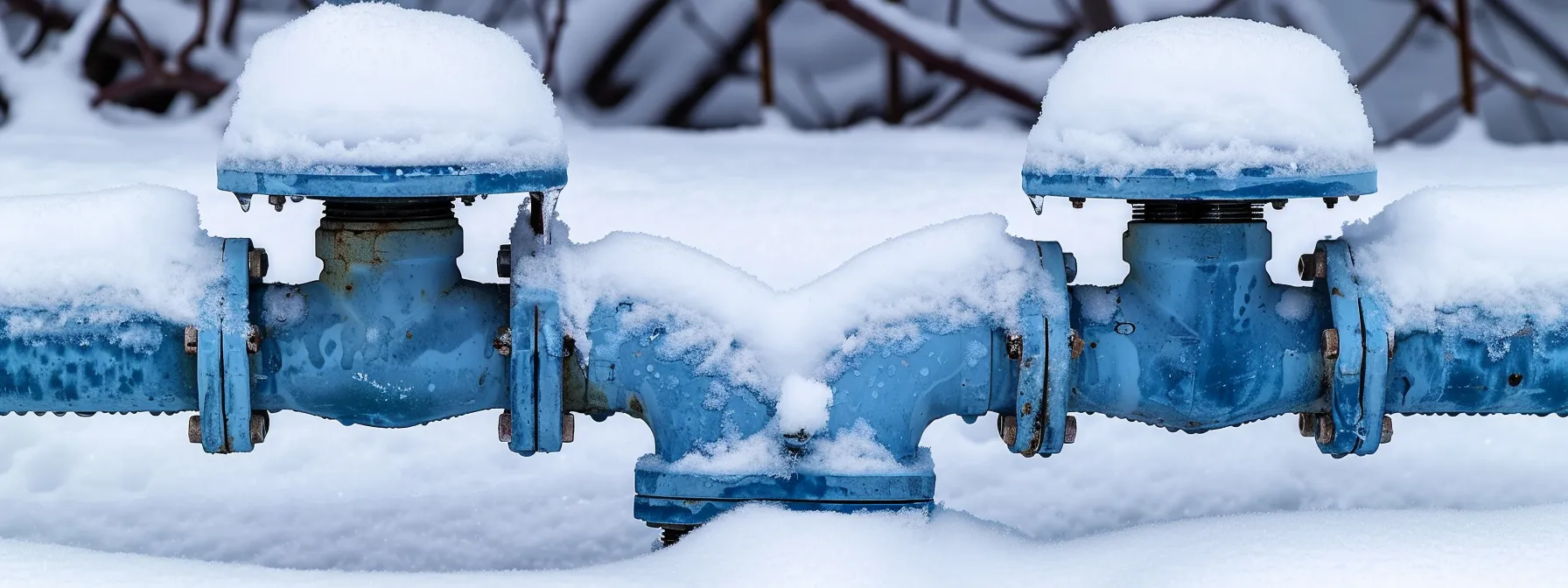
As the cold season approaches, it’s crucial for you to step up your game in protecting your commercial property’s plumbing. Let’s dive into these practical, expert-backed tactics to keep your water flowing and your business warm.
Installing Proper Pipe Insulation
To shield your commercial property from the winter woes of frozen pipes, proper insulation is your first line of defense.
Wrapping your plumbing systems in quality insulation material is like giving them a warm hug, keeping the cold at bay, and ensuring your drains and water lines remain unfazed by the frost. It’s a simple yet effective step that can save you from the disruption and costs associated with pipe bursts.
Don’t wait until the chill sets in; schedule a thorough inspection of your property’s insulation before the temperatures plummet.
This proactive approach not only protects your business from the havoc of frozen pipes but also promotes the efficiency and longevity of your entire plumbing system. With well-insulated pipes, you can rest easy knowing that your property is prepared to face the cold head-on.
Implementing Regular Maintenance Schedules
Setting up a regular maintenance schedule for your plumbing system is like giving your commercial property a health check-up before winter hits. I
t’s about being proactive, ensuring everything from your compressors to your faucets is ready to handle the cold. This routine care can prevent the sudden shock of a frozen pipe, keeping your business running without a hitch.
Think of maintenance as your secret weapon against the frost. A checklist that includes inspecting insulation, testing heating elements, and verifying the operation of shut-off valves can make all the difference.
By sticking to a maintenance plan, you’re not just ticking boxes; you’re actively protecting your property and avoiding the chaos of emergency repairs:
- Inspect and update insulation on all exposed pipes
- Test heating systems to ensure they’re operational
- Verify shut-off valves and backflow preventers are functioning correctly
Remember, regular check-ups for your plumbing system are not just about peace of mind; they’re a cost-effective strategy to avoid the expense and downtime of winter-related damages.
So, roll up your sleeves and get that maintenance schedule in place; your future self will thank you when your property sails through the cold season without a plumbing hiccup.
Utilizing Temperature Monitoring Devices
Imagine it’s the dead of winter, and snow is piling up outside your commercial property. Inside, you’re cozy and warm, thanks to temperature monitoring devices that keep a vigilant eye on your plumbing system.
These handy gadgets alert you to potential freezing conditions before corrosion or rust can set in, allowing you to take action and prevent a full-blown pipe disaster. They’re like an inspection team that never sleeps, ensuring your pipes stay safe from the flame of a blowtorch or the costly aftermath of a burst.
By strategically placing temperature sensors near critical areas, you’re setting up a first line of defense against the cold’s sneakiest attacks.
These devices can detect a drop in temperature that could lead to frozen pipes, giving you the chance to intervene with insulation or heat tape before any damage occurs.
It’s a simple, proactive step that can save you from the headache of emergency repairs and keep your business running without interruption:
- Install temperature sensors in high-risk areas like basements and attics
- Monitor readings regularly, especially during snowstorms or cold snaps
- Combine with insulation checks to ensure comprehensive protection
Educating Staff on Preventive Measures
You know that keeping your team in the loop is just as crucial as any tool in your plumbing maintenance kit. By educating your staff on the signs of potential leaks and the importance of a quick response, you’re empowering them to act as your first line of defense against water damage.
Encourage them to keep an eye out for any irregularities in your plumbing system, and make sure they know how to use a heating pad safely to gently warm pipes that are at risk of freezing, especially in those hard-to-reach areas involved in irrigation.
Let’s face it, you can’t be everywhere at once, and that’s where your team comes in. Give them the know-how to spot trouble with your commercial property’s plumbing before it escalates.
A little training on routine checks for insulation integrity and how to identify early signs of freezing can prevent a world of hassle. When everyone’s clued in on the essentials of plumbing maintenance, you’re setting up your operations for uninterrupted success, even when the temperature takes a nosedive.
With your pipes safe from the cold’s grip, it’s time to shield the rest of your property. Let’s map out a winterization strategy that stands firm against the chill.
Creating a Winterization Plan for Your Commercial Property
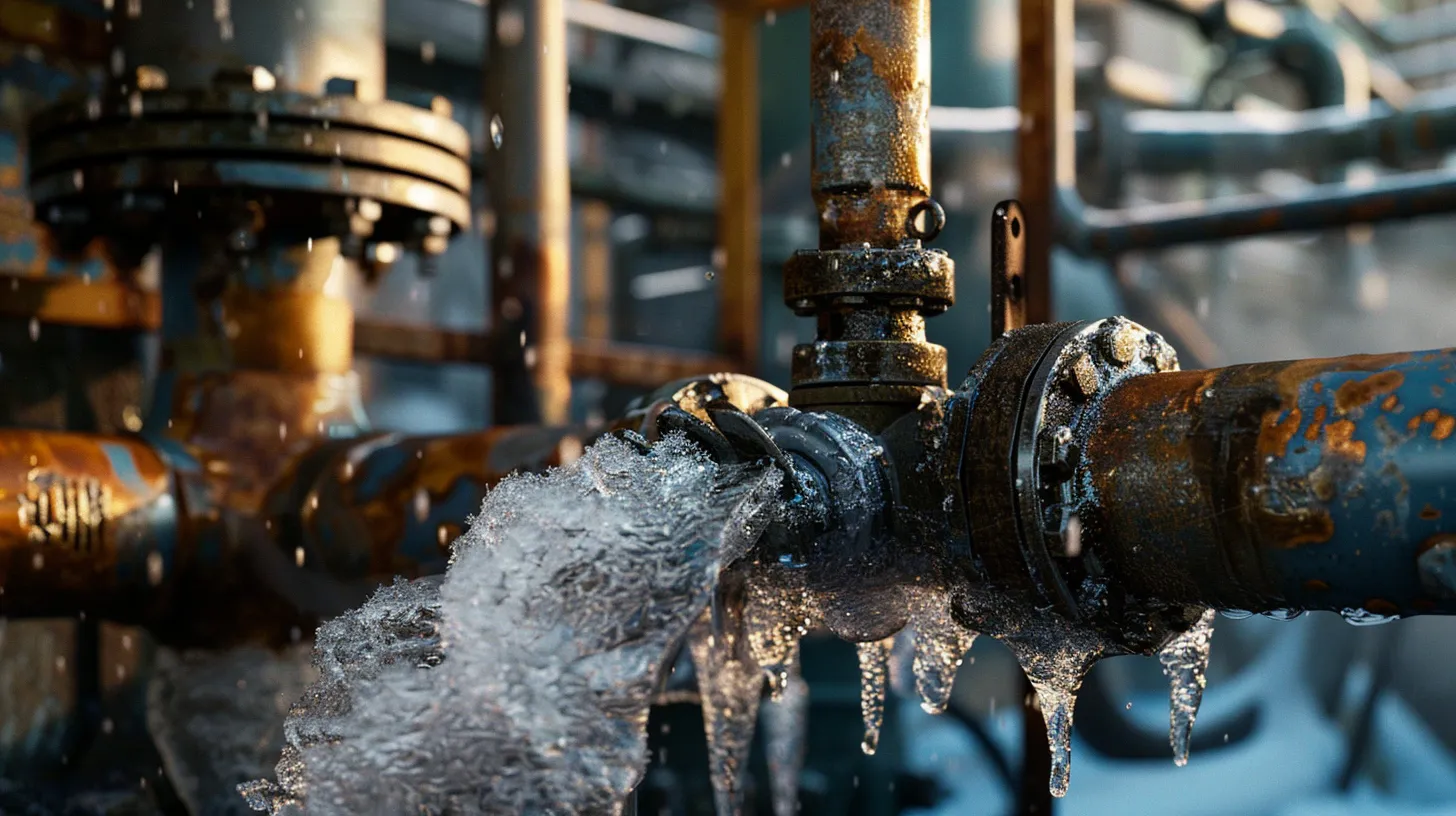
As the chill of winter approaches, it’s time to get your building‘s plumbing in check to avoid the costly headache of frozen pipes. Let’s dive into how you can prepare and fortify your commercial property against the freeze.
Scheduling Pre-Winter Inspections
Before the winter chill takes hold, it’s wise to pencil in pre-winter inspections for your commercial property’s plumbing system.
This is your chance to ensure that your heating HVAC is up to snuff, your electric systems are fault-free, and your plumbing is primed to handle the cold. Think of it as a strategic move to protect your property from the havoc of burst pipes, giving you peace of mind as the temperatures drop.
These inspections are not just a precaution; they’re essential plumbing tips that can save you from costly repairs down the line. A thorough check-up can reveal any potential issues with your sewer system or heating setup that could lead to freezing.
By tackling these problems early, you’re setting the stage for a worry-free winter, keeping your business warm and your water flowing smoothly:
Prioritizing Critical Plumbing Areas
When you’re mapping out your winterization strategy, zeroing in on critical plumbing areas is a must. A thorough plumbing inspection should top your list, with special attention to HVAC systems and radiators that are vital for maintaining a warm, flowing environment.
It’s these areas that, if neglected, could lead to a cascade of chilly problems, so keep them in the spotlight to ensure your property stays toasty and operational.
Don’t let the winter freeze catch you off guard; make sure your plumbing inspections are thorough and frequent, especially in spaces where pipes are prone to the cold’s embrace.
Pay close attention to areas that might not get daily foot traffic, as these are often the first to succumb to freezing temperatures. By keeping a watchful eye and providing regular TLC to these spots, you’ll sidestep the headaches of burst pipes and keep your business running without a hitch.
Allocating Budget for Winterization Efforts
When you’re setting aside funds for winterization, think of it as investing in the well-being of your commercial property.
Allocating a budget for this crucial task means you’re prioritizing the safety of your bathroom pipes against the freeze, ensuring your electric heating systems are up to par, and preventing sediment buildup that can exacerbate freezing risks.
It’s about being smart with your money, so you’re not caught off-guard by the expenses of emergency repairs when a window lets in a draft or a pipe needs a quick thaw with a blowtorch.
Let’s be real, the last thing you want is a frozen pipe bursting and turning your workspace into an indoor pool. By planning your finances to include winterization, you’re taking a proactive step to protect your property.
This might mean upgrading insulation, sealing up drafty windows, or even installing advanced electric heating solutions. It’s about giving yourself the peace of mind that comes with knowing you’ve done all you can to prevent the cold from biting into your bottom line.
Coordinating With Professional Plumbers
When you’re gearing up for winter, teaming up with professional plumbers can be a game-changer for your commercial property. These experts come equipped with the know-how to spot wear in your system that could lead to mold growth or a sputtering outboard motor in your heating setup.
They’ll check your sump pump for signs of plastic degradation and ensure everything’s in top shape to withstand the cold, giving you one less thing to worry about.
Think of professional plumbers as your allies against the winter chill. They’re the ones who’ll dive into the nitty-gritty, safeguarding your pipes from freezing and bursting.
With their help, you can prevent water damage that leads to mold and protect the longevity of your plumbing systems. It’s about more than just maintenance; it’s about fortifying your property against the season’s toughest tests.
Winter’s chill tests the mettle of your commercial property’s defenses. Let’s steel ourselves for the fight against the freeze, learning how to react swiftly to frozen pipes and keep the damage at bay.
Responding to Frozen Pipes and Minimizing Damage
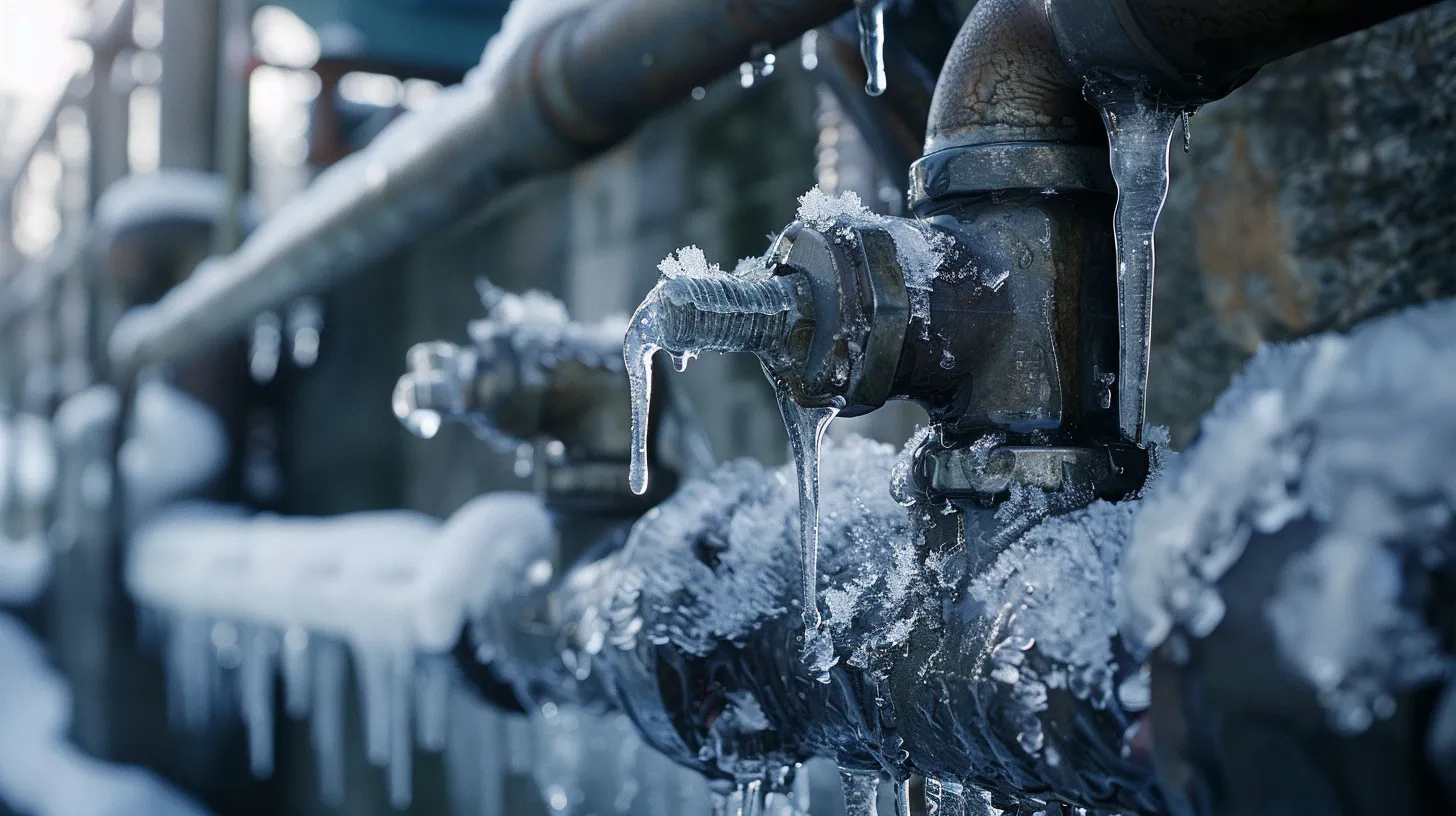
Even with the best preventive measures, you might still face the challenge of frozen pipes during the winter months. Knowing how to detect signs of frozen pipes early can save you from the stress and expense of extensive damage. Let’s walk through these essential responses to keep your commercial property safe and minimize damage.
Detecting Signs of Frozen Pipes Early
Spotting the early signs of frozen pipes can save you a world of trouble. If you notice a significant drop in water pressure or no water coming out of the faucet at all, it’s time to act fast.
These are telltale signs that water inside your pipes may be frozen, and the temperature inside your walls has likely dipped below the scale where water starts turning to ice. Keep your zip code‘s climate in mind, as colder areas may require more frequent checks to prevent the need for thawing frozen pipes.
Accessibility to your pipes is crucial for quick detection and action. Make sure you know where all your main water lines are located, and regularly check them during the cold months. If you find a section that feels unusually cold to the touch or see frost on the exterior, you’re likely dealing with a frozen pipe.
Immediate extraction of the ice blockage is key to preventing bursting, so familiarize yourself with the safest methods for thawing frozen pipes to avoid further damage:
Steps to Safely Thaw Frozen Pipes
If you’re dealing with frost on your pipes, it’s a clear sign that the solubility of warmth in your space is too low, and your heating system needs a quick boost.
Gently apply heat with a hair dryer or heating pad, starting from the faucet end and working your way down to the coldest part of the pipe. This gradual approach allows the carbon dioxide and other gases trapped in the ice to safely escape, reducing the risk of a burst pipe.
It’s smart to have a policy in place for handling frozen pipes, ensuring everyone on your team knows the proper steps to take. If you find a frozen section, open the faucet slightly to allow water to flow and help melt the ice.
Never use an open flame or high heat, as this can damage the pipes or even cause them to burst. Instead, rely on your building‘s heating system to gradually restore the temperature, and consider adding extra insulation to prevent future freeze-ups.
Procedures for Handling Burst Pipes
If you’re hit with the unfortunate event of a burst pipe, it’s crucial to act swiftly to minimize water damage and wear and tear on your property.
Shut off the main water supply immediately to halt the flow of water; this is your first line of defense. Then, quickly assess the situation to determine if the burst is in a copper line or part of the main hull of your plumbing system. If it’s safe to do so, remove any valuable items from the area to prevent further damage from precipitation.
Once you’ve contained the initial chaos, call in your trusted plumbing professionals without delay. They’re equipped to handle the complexities of burst pipes, including those caused by wind chill factors that can stress your system.
Your plumber will replace or repair the damaged sections and advise on steps to prevent future incidents. Remember, quick thinking and prompt action can save you from a flood of troubles down the road.
Communicating With Emergency Plumbing Services
When you’re up against a frozen pipe emergency, clear and prompt communication with emergency plumbing services is crucial.
You need to describe the issue accurately, mentioning if the freeze is in a critical part of your water distribution system or a specific duct. This helps the professionals bring the right tools, like a ball valve or caulk, to address your needs swiftly and effectively.
Remember, time is of the essence when dealing with frozen pipes. Make sure you have the contact details of a reliable emergency service on hand, and don’t hesitate to call them the moment you suspect a problem.
They’re your lifeline to getting your commercial property’s plumbing system back in working order, minimizing damage and restoring your water flow.
The quick action you take against frozen pipes saves more than just water. Let’s see how calling in the pros takes that protection to the next level.
Benefits of Professional Winter Plumbing Services
As you brace your commercial property for winter, consider the benefits of professional plumbing services. Experts in commercial plumbing systems offer customized preventive solutions that protect your assets, ensuring your washing machine and other water-dependent equipment maintain the right operating temperature.
Expertise in Commercial Plumbing Systems
When you’re looking to safeguard your commercial property against winter’s chill, tapping into the expertise of professional plumbing services is a smart move.
These pros have the know-how to meticulously inspect and maintain every part of your system, from the relief valve in your utility room to the bilge switch in the basement.
They understand the unique demands of commercial plumbing, ensuring your lawn sprinkler systems and other outdoor utilities are prepped and ready to withstand the freeze, giving you one less thing to worry about.
With a professional plumber, you’re not just getting a routine check-up; you’re getting a tailored strategy to keep your property’s plumbing in peak condition. They’ll spot issues with your relief valve before it becomes a headache, and they’ll make sure your bilge pump is up to the task of keeping your property dry.
This level of attention means you can focus on running your business, confident that your plumbing utility won’t let you down when the temperature drops.
Customized Preventive Solutions
When you partner with professional plumbers, you’re not just getting a one-size-fits-all approach; you’re getting preventive solutions tailored to the unique needs of your commercial property.
They’ll assess your building‘s specific layout, from the gear in your utility closet to the sewage lines running through your walls, ensuring every inch is geared up for safety and efficiency.
This personalized strategy means you’re armed with the right information to tackle winter head-on, without the worry of plumbing mishaps.
These experts go beyond the basics, considering factors like foot traffic, wall insulation, and the location of critical equipment to devise a winter plumbing plan that’s just right for your space.
They’ll help you understand the why and how of each preventive measure, from insulating sewage pipes to installing frost-proof gear, so you can feel confident that your property is safeguarded against the cold. With their guidance, you’ll have the peace of mind that comes from knowing your plumbing is prepared to face the season’s challenges.
Long-Term Cost Savings and Asset Protection
Investing in professional winter plumbing services for your commercial property isn’t just about avoiding the immediate headaches of a burst pipe; it’s about the long-term cost savings and protection of your assets.
Regular inspections and maintenance of your sprinkler and irrigation systems, for example, can prevent costly mid-winter repairs and extend the life of your equipment.
By ensuring your water heater and filters are in top condition, you’re not only safeguarding against the cold but also optimizing your system‘s efficiency, which can lead to significant savings on your utility bills.
Think about the last time you had to reply to a customer or client about a service interruption due to plumbing issues – not the best conversation, right? Professional plumbers can help you avoid those interactions by keeping your systems, including critical components like your water heater, running without a hitch.
They’ll catch small issues before they become big problems, ensuring your business stays operational and your reputation intact. Here’s a snapshot of how professional services can protect your assets and save you money in the long run:
Ensuring Compliance With Safety Regulations
When you winterize your commercial property, staying on top of safety regulations is not just smart—it’s essential.
Professional plumbing services ensure that your steam heat systems, water lines, and other compounds are up to code, protecting you from legal headaches and keeping your supply flowing safely.
They’re well-versed in the latest standards and can help you navigate the complexities of compliance, giving you one less thing to worry about as the temperatures drop.
By enlisting experts to inspect and maintain your plumbing infrastructure, you’re not just securing your property against the cold; you’re also ensuring that every measure taken aligns with safety regulations.
This proactive approach means your water lines and steam heat systems are not only insulated against the freeze but are also installed and serviced according to the highest safety standards. Here’s a quick look at how professional services can keep you compliant and worry-free:
Conclusion
Winter plumbing inspections and frozen pipe prevention are critical for commercial properties to avoid costly damages and operational disruptions. By prioritizing these essential practices, businesses can maintain uninterrupted operations and protect their assets throughout the cold season.
Winter can bring unique challenges for commercial properties, but with proactive plumbing services and frozen pipe prevention strategies, you can protect your business from costly disruptions. Let the experts at Galgon HVAC & Mechanical Service ensure your systems are prepared to handle the season’s demands. Call us today at (404) 352-1500 or visit our website to fill out a service request. Trust us to keep your commercial property running smoothly, no matter the weather!
